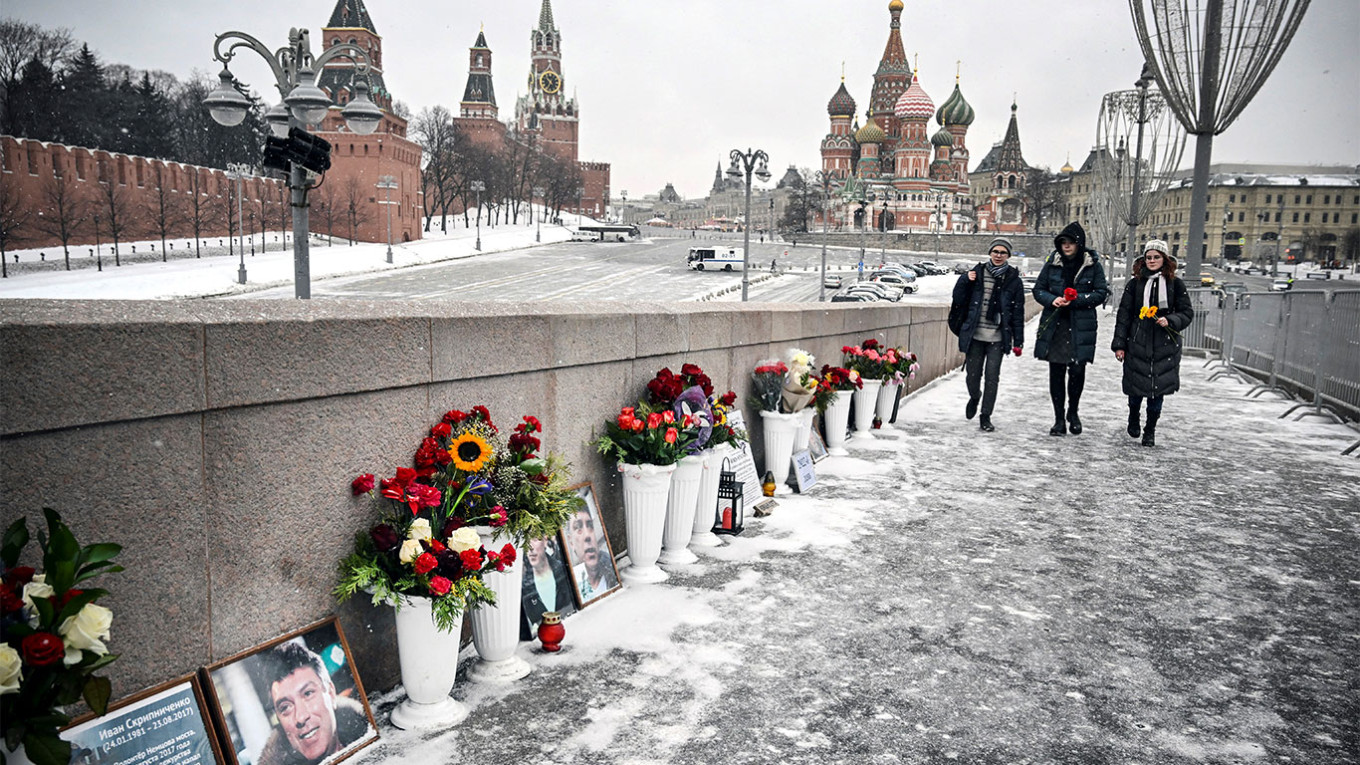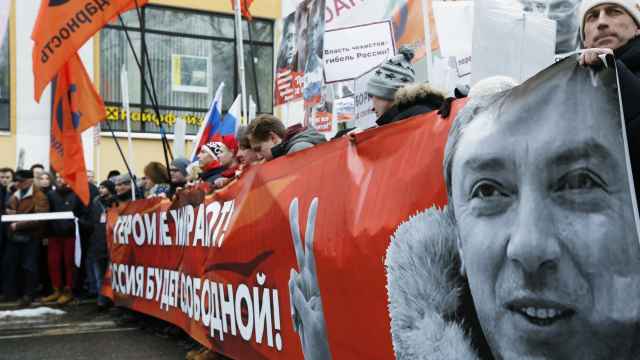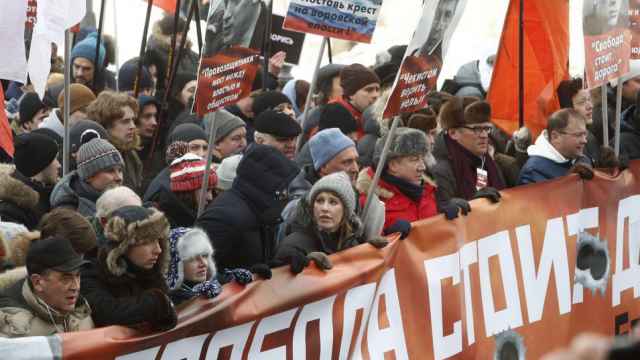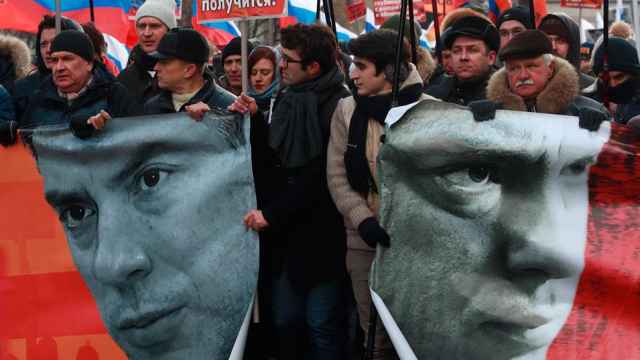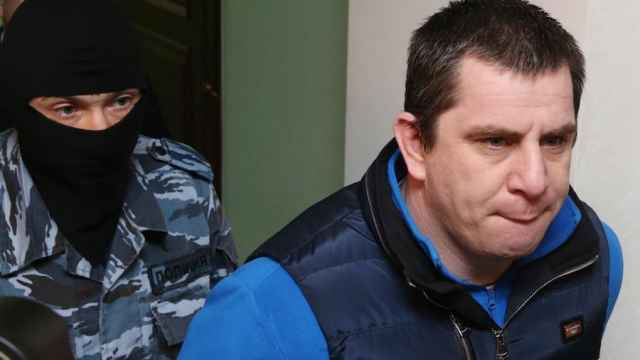The Moscow custom of leaving floral tributes to honor the memory of murdered Kremlin critic Boris Nemtsov on Feb. 27 each year appears to have spread throughout Russia, according to reports from six other cities.
Makeshift flower memorials have appeared in Russia's five biggest cities, Moscow, St. Petersburg, Novosibirsk, Yekaterinburg and Kazan, on the eighth anniversary of Nemtsov's assassination, as well as in the smaller Siberian cities of Tomsk and Barnaul.
The opposition politician, who was a staunch critic of Russian President Vladimir Putin’s authoritarianism and his 2014 annexation of the Crimean peninsula, was killed in a drive-by shooting by hired assassins as he was walking on a bridge near the Kremlin with his girlfriend on Feb. 27, 2015.
Diplomats including the deputy head of the EU’s Moscow delegation, Ivana Noršić, laid flowers at the Boris Nemtsov memorial on the site of his murder on Moscow's Bolshoy Moskvoretsky Bridge on Monday.
One person was detained while placing flowers at the same memorial on Monday, according to RusNews.
After a controversial investigation into Nemtsov's assassination, five men were arrested and charged with his murder, receiving long prison sentences in 2017.
A sixth suspect in the case, Beslan Shavanov, killed himself with explosives when police surrounded his apartment in the Chechen capital Grozny.
Nemtsov’s allies, however, have always cast doubt on the investigation that led to the arrest of Nemtsov’s apparent murderers, arguing that the true masterminds behind the killing have never been brought to justice.
A year prior to the murder, Nemtsov was followed by the same FSB officers who were later alleged to have been involved in poisoning opposition politicians Alexei Navalny and Vladimir Kara-Murza, as well as the writer Dmitry Bykov, according to an investigation carried out by Bellingcat, The Insider and the BBC Russian Service.
A Message from The Moscow Times:
Dear readers,
We are facing unprecedented challenges. Russia's Prosecutor General's Office has designated The Moscow Times as an "undesirable" organization, criminalizing our work and putting our staff at risk of prosecution. This follows our earlier unjust labeling as a "foreign agent."
These actions are direct attempts to silence independent journalism in Russia. The authorities claim our work "discredits the decisions of the Russian leadership." We see things differently: we strive to provide accurate, unbiased reporting on Russia.
We, the journalists of The Moscow Times, refuse to be silenced. But to continue our work, we need your help.
Your support, no matter how small, makes a world of difference. If you can, please support us monthly starting from just $2. It's quick to set up, and every contribution makes a significant impact.
By supporting The Moscow Times, you're defending open, independent journalism in the face of repression. Thank you for standing with us.
Remind me later.


